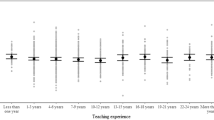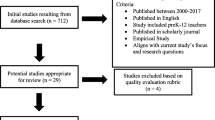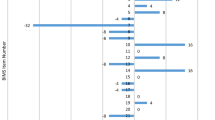Abstract
While there can be benefits from having overseas teaching experience, the transition back to New Zealand is not always easy for teachers who have previously gained their initial teaching qualification and certification in New Zealand. Upon returning to New Zealand from teaching in an international context, teachers can find it difficult having their overseas teaching experience and knowledge valued and recognised. This article reports on a study of 40 teachers who, after gaining experience teaching in an international context, transitioned back to New Zealand. Findings illustrated that while their overseas experiences provided benefits for the teachers, their transition back to New Zealand was challenging and, for some, a time of frustration and disillusionment. In particular, the challenges were associated with having their international teaching experiences valued, re-culturing back to the New Zealand educational context and getting recognition for certification and remuneration purposes.
Similar content being viewed by others
References
Beach, K. (1999). Consequential transitions: A sociocultural expedition beyond transfer in education. Review of Research in Education, 24, 101–139.
Bell, J. (2005). Doing your research project: A guide for first-time researchers in education, health and social science (4th ed.). New York, NY: Open University Press.
Black, D. R., & Scott, W. A. H. (1997). Factors affecting the employment of teachers returning to the United Kingdom after teaching abroad. Educational Research, 40(1), 37–63.
Boreen, J., Niday, D., & Johnson, M. (2003). Mentoring across boundaries. Portland, ME: Stenhouse.
Bridges, W. (2004). Transitions: Making sense of life’s changes (2nd ed.). Cambridge, MA: De Capo Press.
Bridges, W. (2009). Managing transitions: Making the most of change (3rd ed.). Philadelphia, PA: De Capo Press.
Bryman, A. (2001). Social research methods. Oxford, England: Oxford University Press.
Bullough, R. V. (2008). Counternarratives: Studies of teacher education and becoming and being a teacher. Albany, NY: State University of New York Press.
Carlyon, T. (2013). Teachers changing class levels: A platform for shaping pedagogies. Teachers and Curriculum, 13, 99–105.
Carlyon, T. (2014). Teacher transition between year levels in primary schools: An opportunity for continuing professional development. Professional Development in Education. https://doi.org/10.1080/19415257.2014.902859.
Carlyon, T. (2016a). School leadership that supports teacher learning through transition. Leading and Managing, 22(1), 92–104.
Carlyon, T. (2016b). Teachers in schools transitioning from one year level to another: What impact does this have on teachers’ professional identity? Asia-Pacific Journal of Teacher Education. https://doi.org/10.1080/1359866X.2016.1201045.
Carlyon, T., & Fisher, A. (2012). What informs primary school principals' decision making in relation to teacher placement in class levels? Australian Journal of Education, 56(1), 68–82.
Carlyon, T., & Fisher, A. (2013). Primary school principals’ strategic approaches to teacher class placement. Journal of Educational Leadership, Policy and Practice, 28(2), 69–78.
Cohen, L., Manion, L., & Morrison, K. (2007). Research methods in education (6th ed.). London, England: Routledge/Falmer.
Cohen, L., Manion, L., & Morrison, K. (2011). Research methods in edcuation (7th ed.). Abingdon, Oxan, New York: Routledge.
Creswell, J. W. (2009). Research design. Qualitative, quantitative, and mixed-methods approaches (3rd ed.). London, England: Sage.
du Plessis, A. E., Gillies, R. M., & Carroll, A. (2014). Out-of-field teaching and professional development: A transnational investigation across Australia and South Africa. International Journal of Educational Research, 66, 90–102. https://doi.org/10.1016/j.ijer.2014.03.002.
Fabian, H., & Dunlop, A. W. (2002). Transitions in the early years: Debating continuity and progression for young children in early education. New York, NY: Routledge-Falmer.
Fullan, M. (1993). Change forces. Probing the depths of educational reform. London, England: The Falmer Press.
Fullan, M. (2008). Curriculum implementation and sustainability. In F. M. Connelly (Ed.), The Sage handbook of curriculum and instruction (pp. 113–122). Thousand Oaks, CA: Sage.
Gonzalez, N., Moll, L. C., & Amanti, C. (2005). Crossing the border: A community negotiates the transition from early childhood to primary school. Wellington, New Zealand: NZCER Press.
Hargreaves, A., Earl, L., Moore, S., & Manning, S. (2001). Learning to change. San Francisco, CA: Jossey-Bass.
Hartley, C. (2012). Crossing the border: A community negotiates the transition from early childhood to primary school. Wellington, New Zealand: NZCER Press.
Hattie, J. A. (2002). What are the attributed of excellent teachers?. Auckland, New Zealand: University of Auckland.
Kitchen, J. (2009). Relational teacher development: Growing collaboratively in a hoping relationship. Teacher Education Quarterly, 36(2), 45–56.
Larrivee, B. (2000). Transforming teaching practice: Becoming the critically reflective teacher. Reflective Practice, 1(3), 293–307.
Le Fevre, D. (2010). Changing tack: Talking about change knowledge for professional learning. In H. Timperley & J. Parr (Eds.), Weaving evidence, inquiry and standards to build better schools (pp. 71–92). Wellington, New Zealand: NZCER Press.
Livingston, K. (2012). Approaches to professional development of teachers in Scotland: Pedagogical innovation or financial necessity? Educational Research, 54(2), 161–172. https://doi.org/10.1080/00131881.2012.680041.
Mutch, C. (2005). Doing educational research. A practitioner’s guide to getting started. Wellington, New Zealand: NZCER Press.
Neuman, W. L. (2006). Social research methods. Qualitative and quantitative approaches (6th ed.). Boston, MA: Pearson.
Newell, G. E., Tallman, L., & Letcher, M. (2009). A longitudinal study of consequential transitions in the teaching of literature. Research in the Teaching of English, 44(1), 89–127.
Seah, W. T. (2003). The professional socialisation of teachers in transition: A values perspective. Melbourne, VIC, Australia: Monash University.
Timperley, H., Wilson, A., Barrar, H., & Fung, I. (2008). Teacher professional learning and development: Best evidence synthesis iteration (BES). Wellington, New Zealand: Ministry of Education.
Vogler, P., Crivello, G., & Woodhead, M. (2008). Early childhood transitions research: A review of concepts, theory, and practice. Working paper No. 48. The Hague, The Netherlands: Bernard van Leer Foundation.
Author information
Authors and Affiliations
Corresponding author
Rights and permissions
About this article
Cite this article
Fisher, A., Carlyon, T. The Transition from Teaching in an International Context Back to New Zealand. NZ J Educ Stud 53, 37–48 (2018). https://doi.org/10.1007/s40841-017-0103-2
Received:
Accepted:
Published:
Issue Date:
DOI: https://doi.org/10.1007/s40841-017-0103-2




